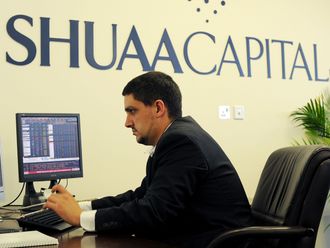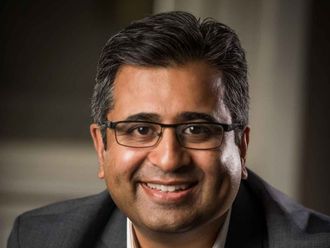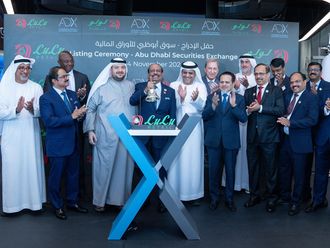Dubai While it depends on an individual's return objective, risk tolerance and investment horizon, most analysts agree that for the medium term — looking at two to three years — the UAE offers good opportunities.
"The time is ripe for equity allocations, especially before inflation heats up again in the medium term," says Talal Touqan, head of equity research at Al Ramz Securities.
"Looking forward, the market is trading at a leading price earnings (P/E) ratio of below eight times, with more than 20 companies generating cash dividend yields of above five per cent. The UAE is still rich in valuable stocks that trade at below 100 per cent of their book value."
While there's still room for a medium-term basis for people to make money, "we will see some corrections and those correction periods, I think, will be short lived," says Haissam Arabi, chief executive of Gulfmena Investments. "When they do happen, that's when there's a chance for people to get in."
Emaar Properties, Aldar Properties, Sorouh Real Estate, Drake & Scull, Tamweel, Abu Dhabi Islamic Bank, National Bank of Abu Dhabi, First Gulf Bank, Union National Bank, Aramex, Air Arabia and du, are some of the picks of fund managers and analysts.
Recovery path
Almost all of them have attractive price multiples, but also the fact that these companies are from sectors that are on a recovery path or are defensive by nature make them favourites. They also have a healthy balance sheet, strong cash flow and are well managed with a stable outlook.
Emaar and mortgage company Tamweel, as Arabi points out, will be direct beneficiaries of the Dubai real estate sector's comeback. Also, as Tarek Qaqish, deputy head of asset management at Al Mal Capital points out, Emaar will continue to register solid cash flow through its recurring revenues in retail and hospitality and will drive earnings going forward. Additionally, its operations in Saudi Arabia are improving. The balance sheet remains strong and its ability to raise funds debt at 5.5 per cent indicates that cost of funding is on the decline.
Drake & Scull appears on the lists of Qaqish, Arabi and Shakeel Sarwar, head of asset management at SICO, Bahrain. The company's margin contraction in the fourth quarter, Qaqish says, was due to the shift of its business segment that is skewed towards more civil contracts. The backlog continues to rise outside the UAE, a sign of a diversified portfolio. The stock is trading below its peers of eight times P/E and 0.75 price-to-book in 2012.
"If you are more of the daring, you might take some exposure to Sorouh and Aldar, although I would say just a very tiny little turnover, betting on the fact that they are going to turn around," says Arabi.
Abu Dhabi Islamic Bank, First Gulf Bank and National Bank of Abu Dhabi appear on the list of some managers based on their improved loan growth and liquidity. A valuation of 7 times in case of ADIB and between eight and nine times in case of the other two make all three ripe for picking. Besides the first two, Touqan adds Union National Bank, which has current P/E ratio of 5.6 times.
Du continues to gain market share and improve its reach to its clients. Also, as Qaqish points out, it is trading at attractive levels compared to its peers — eight times P/E with a return on equity of 33 per cent. Mobile Number Portability will help it to target etisalat's higher pending customers. Also, when its fixed-line fibre optic network comes online it should be a revenue boost starting this year.
With strong fundamentals and growing networks and routes respectively, Aramex and Air Arabia also find favour with a few managers.












